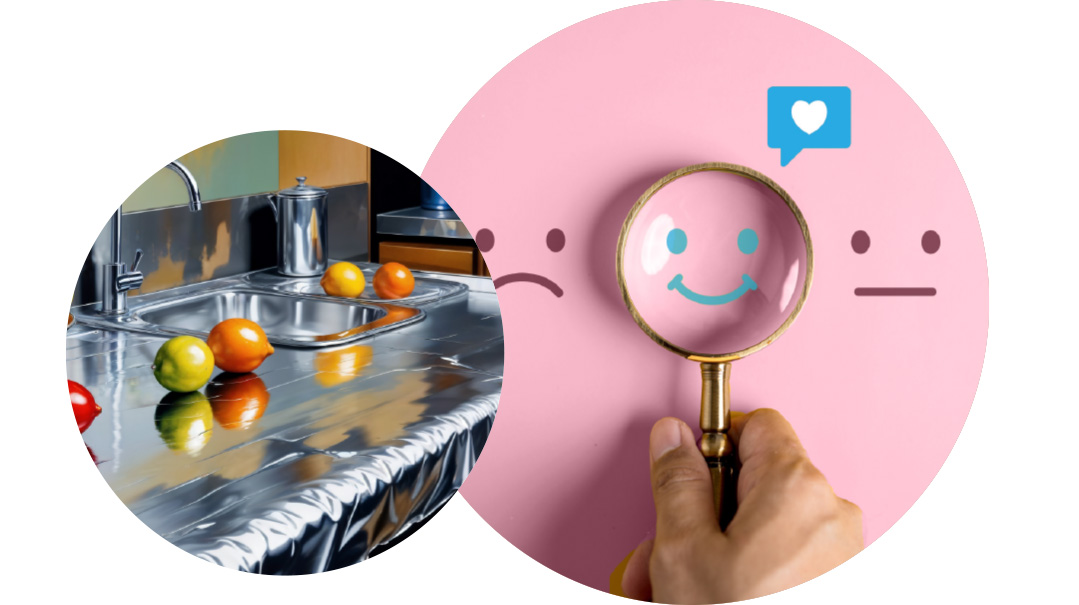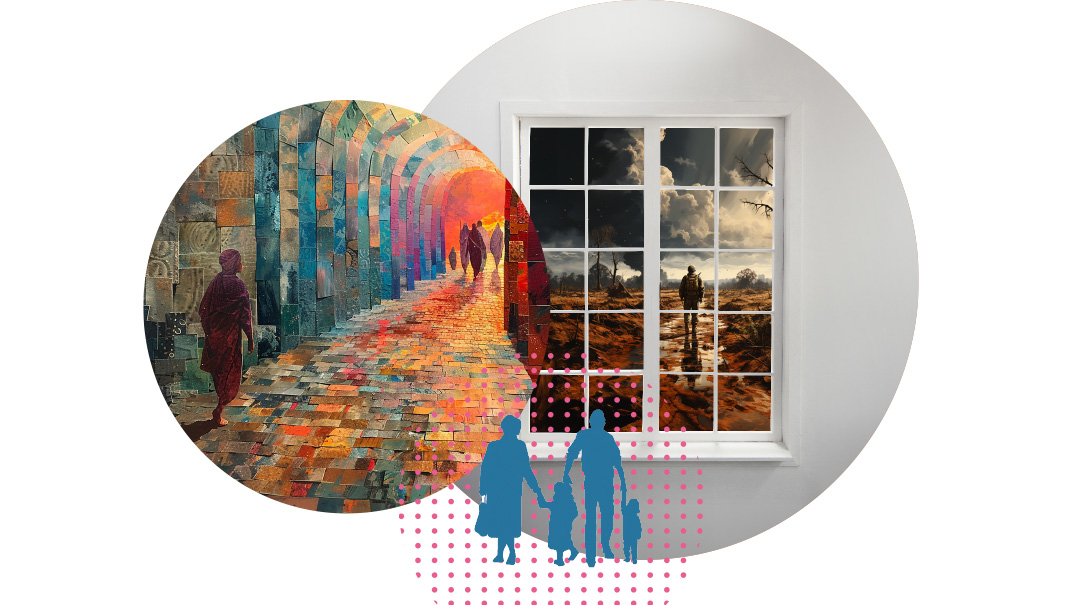Family First Inbox: Issue 863

“Please, please, never judge someone’s infertility journey by how long they’ve been married”

Don’t Look Down on Her [Inbox / Issue 861]
I was really disturbed by the letter in which a reader wrote that “we’re not doing kids a favor by telling them to respond to an occasional rant by mom in the same way they should respond to actual abuse,” and that in relation to their parents, her contemporaries, second-generation Holocaust survivors, “…didn’t assess their parenting skills. We didn’t blame our life’s challenges, in adulthood, on our perception of their inadequacies.” That letter was in response to another reader’s letter in which she said she learned to be happy even though growing up, her mother’s parenting style hurt her very much.
In my years in practice as a social worker, and in my years as a human, I’ve seen that children overwhelmingly want to perceive their parents’ hurtful actions as normal human behavior. It’s not instinctive to think of parents as “disordered.” That usually comes later, when trying to make sense of what happened.
As the letter writers says, often a parent’s angry behavior IS normal. After all, mothers are human, and often overwhelmed. It’s really when there’s no space for the child’s experience of that behavior that there is damage. For example, does the parent apologize? Lashing out and being nasty is unacceptable, even if human. Is it safe for the child to say they don’t like being yelled at?
We can believe the original letter writer when she says her mother’s behavior was troubling. This isn’t to say that her mother deliberately set out to hurt her — she most likely didn’t. But there was what to recover from. Nobody told her to respond to normal behavior as if it was real trauma. It was simply her experience.
The original letter writer shows us such a beautiful way of dealing with her resultant lack of emotional equilibrium — notice your triggers, take care of yourself, and take responsibility for your actions. There is so much to learn from her.
I’d hate to take her example and the example of others like her as something to look down on.
It’s possible that growing up with survivors as parents, it was easier to perceive their actions as “human behavior,” and perhaps it didn’t hurt as much in the moment. Maybe.
It’s also possible that second-generation survivors had a higher threshold for what we call “emotional pain.”
And, dare I say, perhaps this attitude of expecting children to learn “how to be happy anyway” contributes to the next generation’s need to heal from their parents’ emotional neglect and emotional illiteracy.
Thanks again for providing a platform for important dialogue.
Tzipora Schiffer, LCSW
Monsey, NY
Let’s Coin a New Term [Inbox / Issue 861]
Enough is enough. It’s time to coin a new phrase: “Parent Abuse.” In the last page of Maseches Sotah it says that in the days before Mashiach, daughters will rise up against their mothers. The current climate of therapy has been incredibly damaging to the fabric of our society, and in many cases has been tearing apart families. Most issues are blamed on one’s upbringing. There is an epidemic of children turning on and blaming parents for their issues, and in way too many cases, “detaching” from their parents because “they don’t feel safe.”
Anonymous
I Want to Be There for You [The Scenic Route / Issue 861]
I always enjoy reading the diary serials, and am looking forward to what I will learn from “The Scenic Route,” as well as about Chava’s struggle with infertility. I was very sad to read how isolated and lonely Chava felt, and I’m happy that, in the end, she was able to take comfort from the other women in the waiting room.
As a friend of a few people following a similar journey to Chava’s, I want to share something with them: I really care about you, and I want to offer my support. I just don't know when it's needed. I’m not asking for details at all, but if you’re feeling unwell because of a treatment, or could use a pick-me-up, I wish you would let me know so I could know to bake for you, or bring you dinner.
I myself have been single for several years and that brings its own ups and downs. Not everyone in my life will know when I’ve had a bad experience or am feeling low. Sometimes I go out of my comfort zone to tell a close friend or two that I need a little extra leeway or that I’m having a hard time. It’s not my nature to share, but it means that then my friends can know to be there for me in even a small, but meaningful way.
I understand that the very nature of infertility is private, and I respect that completely. However, to your close friends, it’s not a secret that this is the struggle Hashem has sent your way. If you felt comfortable, and could let me know when you could use a boost, I’d love to be there for you and help curb that feeling of isolation even a little bit, no questions asked.
A Friend Who Cares
It’s Not a Matter of Time [The Scenic Route / Issue 861]
I had to stop my Erev Shabbos cooking to thank Family First for the current diary serial, “The Scenic Route.” Although the serial is only in the beginning chapters, already I feel more validated by this story than I ever have before.
I, too, am “invisibly suffering” since, a little over a year into our marriage, we discovered a significant problem that now is still leading us down a winding path, likely into “invasive treatment” land. Nobody besides us and our rav realize how serious our case is, and that we’ll likely need to fight for every baby, although we haven’t been married for that long.
Recently, I asked a close relative to daven for us and, bewildered, she said, “But you’ve only been married a couple of years! Don’t some couples wait much longer than that?” I cried buckets after that conversation. She had no idea that, even if we’re blessed with a baby from this treatment, it will likely not be the end of the journey for us. Our hope of having a large (or even medium-sized) family looks less and less likely, since we realized that our issue is (b’derech ha’teva) life-long. But nobody realizes this since “we’ve only been married a couple of years.”
Please, please, never judge someone’s infertility journey by how long they’ve been married. For some reason, our society thinks that the longer someone has been married, the more they “deserve” tefillos. Nobody has any right to rate or weigh the situation of any couple or family based on any factors outsiders see.
If you know someone dealing with infertility, they deserve kindness and compassion no matter how old they are or how long they’ve been married.
May Klal Yisrael know no more tzaros.
An Invisible Sufferer
Great Story [Irreplaceable/ Issue 861]
Rachel Newton’s tale of family frustration and interior desecration was magnificent. Some people take the cake, but you, Rachel, shoplifted the entire bakery with the baker still inside. Please continue writing fabulous stories, and while you’re at it, maybe stay away from interior decorating.
Zisi Naimark
You Can Do it on Your Own [A Better You / 860]
Thank you for the informative article by Abby Delouya, “How to: Work on your relationship when your spouse refuses therapy.” She presented many helpful ideas for shifting the tone in a relationship.
Based on my experience with many women, and the experience of other mentors and coaches, I disagree with her on two assumptions: that therapy is the only route to repairing a marriage, and that “one person can’t save a relationship.”
Let’s take a look at the average woman who has “issues” in her marriage. She likely received a smattering of preparation for marriage in seminary (“You need to work on your marriage,” “You need to have good communication,” “Be mevater”), a bit of additional advice (hopefully) from her kallah teacher, and zero education or support once the last sheva brachos seudah is over.
She finds, to her surprise, that she and her new husband are actually not exactly the same, and that her husband — and marriage — aren’t living up to her expectations. They have frequent disagreements, or she simmers silently in her dissatisfaction. For a while, she tries to change him; when that doesn’t work, she tries to convince him to go with her to therapy.
Marriage therapy can indeed be helpful, and at times is a necessity. But in the vast majority of cases (barring addiction, abuse, mental illness, or extreme dysfunction), what is missing is simply education and support.
In a perfect world, both men and women would receive practical preparation for marriage, as well as ongoing support throughout shanah rishonah and beyond. The reality, however, is that a woman, in particular, has tremendous power to create real and lasting transformation in her relationship — once she has learned the specific skills to do so.
Through specialized exercises, techniques, and mindset shifts, a wife (yes! on her own!) can learn to transform her relationship and deepen her connection, by learning to challenge her own beliefs, identify and address her own desires, release judgment of her husband, recognize and appreciate what he provides for her, and tap into his natural desire to please his wife. Remarkably, these skills not only transform the atmosphere of the marriage and the wife’s own experience of it; most frequently the husband, too, ends up changing — without his wife needing to instruct, demand, or request that he do so.
We as a community have come a long way in shalom bayis awareness — and we have a long way to go in terms of normalizing education and support for this huge life shift. Every couple is different, and it is nearly universal to have challenges along the way. Therapy is but one possible tool in the journey to a deeper connection.
Alisa Avruch
Marriage Mentor
The Secret Spark
(Originally featured in Family First, Issue 863)
Oops! We could not locate your form.







